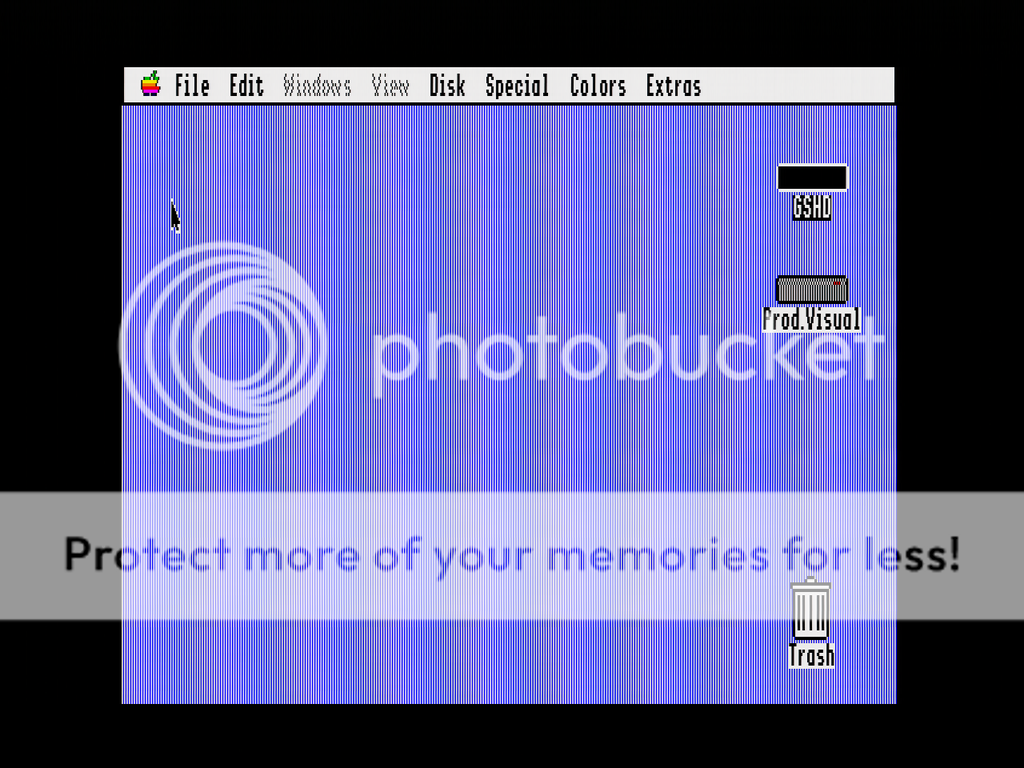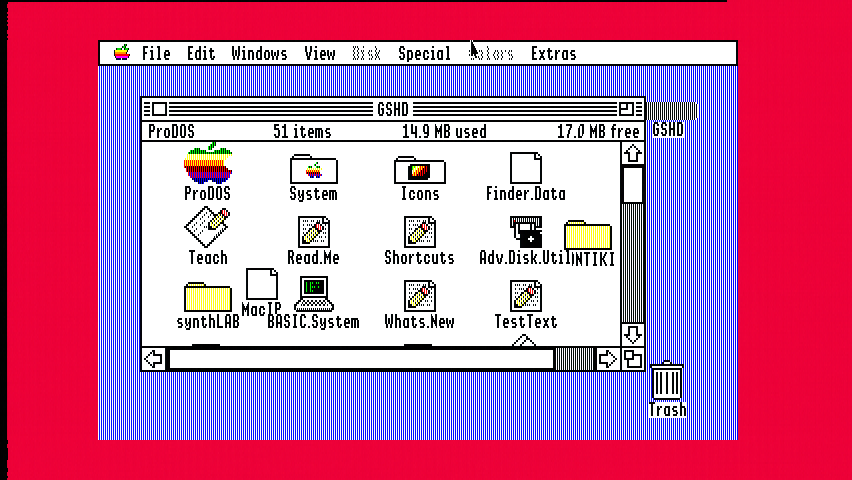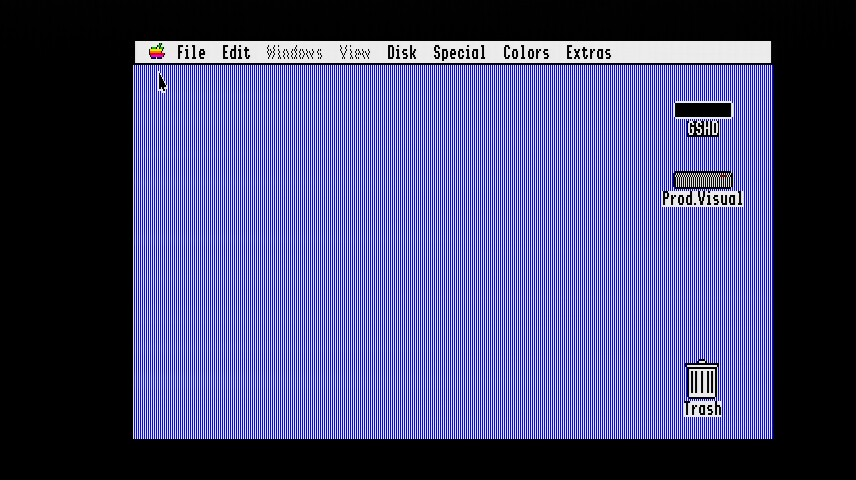Highest pixel dot clock supported in 240p mode?
NewHome › Forums › OSSC, OSSC Pro and DExx-vd isl › OSSC – Discussion and support › Highest pixel dot clock supported in 240p mode?
- This topic has 5 replies, 2 voices, and was last updated May 3, 2017 at 8:29 PM by
NJRoadfan.
-
AuthorPosts
-
April 30, 2017 at 6:35 AM #12661
I’m having a heck of a time getting the 640×200 SHR graphics mode working properly on my Apple IIgs via the OSSC. I have read its due to the sampler being unable to lock onto the 16.36 MHz dot clock this video mode outputs, which creates a vertical banding beat pattern (The IIgs in 640×200 mode uses alternating palettes for odd/even columns so colors are dithered similar to the PC-8801). Tweaking the advanced timing controls (mostly sampling rate) and the sampling phase does not completely eliminate it. FWIW, I have zero trouble with 640×200 mode on my Amiga, but this machine outputs video at dot clocks closer to NTSC frequencies (14.12Mhz according to online sources, double standard NTSC).
Meanwhile when I directly connect the IIgs to my Epiphan DVI2PCIe frame-grabber, I can obtain pixel perfect capture by simply adjusting the horizontal sampling rate.
May 1, 2017 at 11:03 PM #12688This is what the IIgs looks like connected via the OSSC, note the beat pattern on the blue desktop background.

Direct link to image as the forum is resizing the above: http://i820.photobucket.com/albums/zz122/njroadfan/DVI2PCIe/IIgs%20640%20OSSC_zps3objcane.png~original
Playing with the advanced timing settings just increases or decreases the frequency of the beat pattern on the desktop background and never completely eliminates it. The Apple IIgs is connected to the OSSC via the VGA port (AV3).
This is what it is supposed to look like via a direct capture from my capture card (an emulator will produce similar results). The background consists of 1 pixel wide blue and white vertical lines to create a dithered periwinkle color.
 May 2, 2017 at 9:51 PM #12706
May 2, 2017 at 9:51 PM #12706Is that a real capture from the OSSC? It is 1024 pixels wide but your direct capture is 852 wide.
Which samplerates have you tried? You should be able to use the same horizontal sampling rate as on your capture card.
What does the OSSC display show for refresh rate and line count?
You can also try to turn off ‘Allow TVP HPLL2x’.
May 3, 2017 at 3:23 AM #12707The OSSC was in Line4x mode when I took the still, looks like photobucket resized the damn image! It doesn’t matter what mode its in, even 240p pass-thru, I still get the beat pattern. Turning off ‘Allow TVP HPLL2x’ doesn’t seem to have any effect. The display shows 261p, 15.69khz, 60.14Hz. My capture card shows no artifacts with a horizontal samplerate of 852 pixels active when I do a direct analog capture with it (hence the wide image resolution and no scan doubling, I doubled the height from 240 lines to 480 lines in post). The OSSC’s 240p mode defaults at 858 for the H. samplerate in Line2x mode.
May 3, 2017 at 11:12 AM #12709The horizontal samplerate should be higher than active pixels because it includes sync and blanking. You can calculate the samplingrate with (dot clock / line count / refresh rate) so in this case (1260/77 * 1000000 / 261 / 60.14) = ~1042.5
So with line2X mode the H.samplerate should be around 1042. H.active 852 or 640 if you want to crop the overscan. You need to change H.synclen and H.backporch to center the image.
With line4X mode at generic 4:3, H.samplerate needs to be doubled so around 2085. H.active 1704.
With ‘Allow TVP HPLL2x’ On the sampling phase will be unstable so you’ll want to keep it off for pixel perfect sampling rates.
May 3, 2017 at 8:29 PM #12713Some tweaking got the below results.

I’m still getting some noise in the image that evident in the above (minor flickering), but its close enough. No clue if its the machine itself producing the noise. Right now the IIgs is connected to AV3, which lacks the LPF, so there is still the possibility to improve the image further.
-
AuthorPosts
- You must be logged in to reply to this topic.

